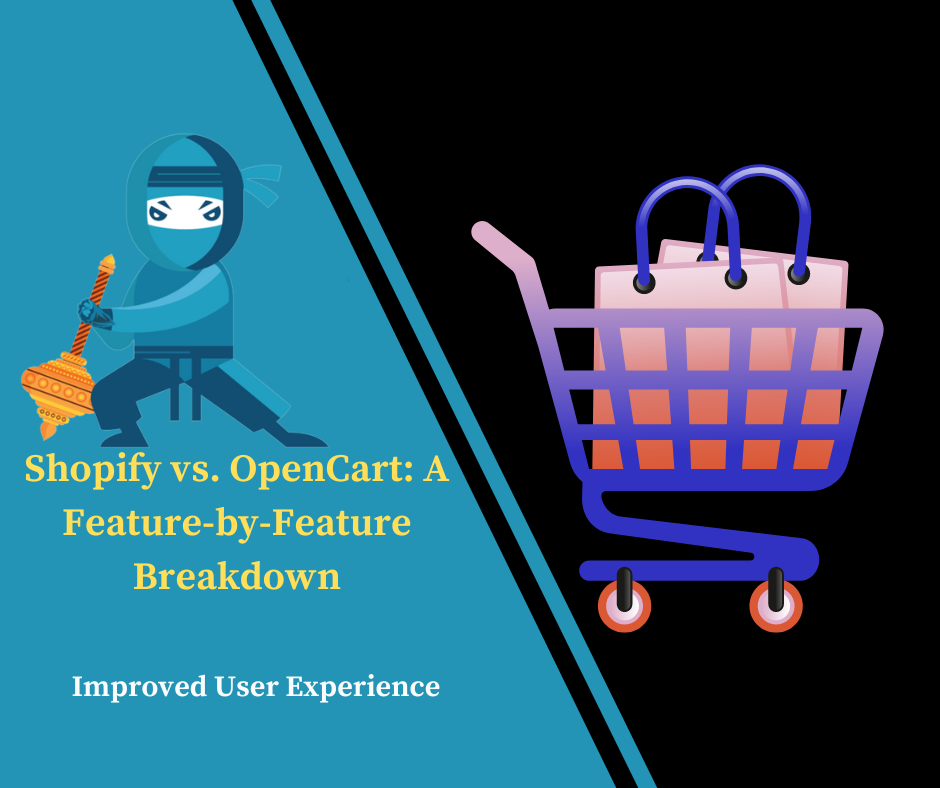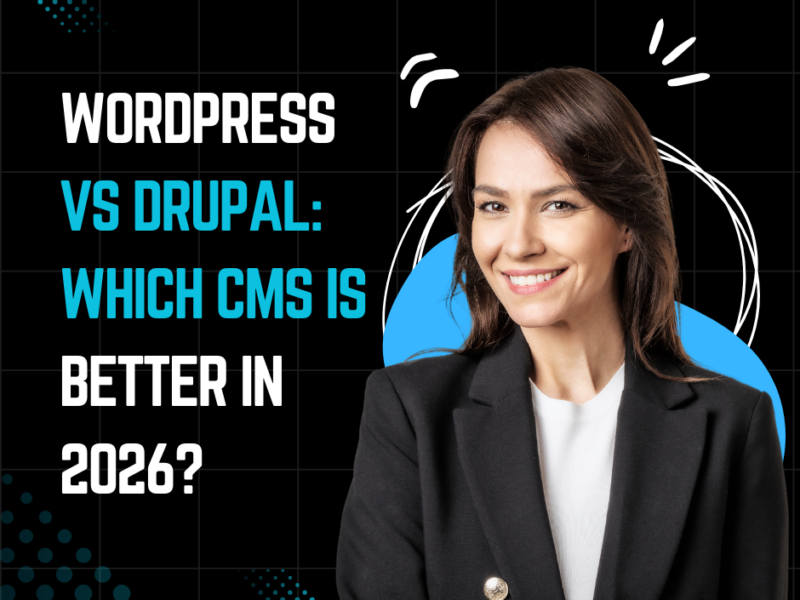Shopify vs. OpenCart: A Feature-by-Feature Breakdown
When it comes to choosing the right eCommerce platform for your online store, two popular options often emerge Shopify and OpenCart. Both platforms offer robust features designed to help businesses build, manage, and grow their online stores, but they cater to different needs. In this article, we’ll break down the features of Shopify vs. OpenCart to help you make an informed decision.
Ease of Use
One of the most important factors when choosing an eCommerce platform is ease of use. Let’s compare Shopify and OpenCart in this area.
Shopify
Shopify is known for its user-friendly interface. With a simple, drag-and-drop editor, you don’t need coding experience to build a functional and attractive store. Shopify also handles hosting, so you don’t have to worry about finding a server or configuring settings.
OpenCart
OpenCart, on the other hand, requires more technical knowledge. Since it is self-hosted, you’ll need to set up your hosting service and configure your store’s settings manually. For those with web development experience, OpenCart offers more control and flexibility, but it can be overwhelming for beginners.
Verdict: Shopify is easier for beginners, while OpenCart offers more customization for those with technical expertise.
Cost
Cost is always a key consideration for any business. Here’s how Shopify vs. OpenCart compares in terms of expenses.
Shopify
Shopify operates on a subscription-based model with tiered pricing plans. Basic Shopify starts at $39 per month, while more advanced options can cost up to $399 per month. This pricing includes hosting, security, and customer support. Additionally, Shopify charges transaction fees unless you use Shopify Payments.
OpenCart
OpenCart is open-source and free to use, but there are additional costs involved. You’ll need to pay for hosting, which can range from a few dollars to hundreds per month, depending on your site’s traffic. Extensions and themes are often necessary for added functionality, and some of these come with a cost.
Verdict: Shopify has a higher upfront cost, but OpenCart can become expensive when you factor in hosting and extensions.
Customization and Flexibility
Customization and flexibility are essential for businesses looking to create a unique store. Let’s compare how Shopify vs. OpenCart stack up in this area.
Also read: PrestaShop vs. Shopify: Which E-Commerce Platform is Best for Your Store?
Shopify
Shopify offers a range of themes (both free and paid), but customization is somewhat limited unless you have experience with Liquid, Shopify’s templating language. However, its app store features thousands of integrations and extensions that can enhance your store’s functionality.
OpenCart
OpenCart shines in terms of flexibility and customization. As an open-source platform, you have full access to the code and can modify it as needed. There are thousands of extensions and themes available, many of which are free or low-cost, giving you nearly unlimited control over the look and function of your store.
Verdict: OpenCart wins in terms of flexibility, while Shopify offers limited customization unless you are comfortable with coding.
Payment Gateways
Offering multiple payment options is crucial for global eCommerce. Here’s how Shopify vs. OpenCart compares in terms of payment gateways.
Shopify
Shopify supports over 100 payment gateways, including major providers like PayPal, Stripe, and Authorize.net. It also has its payment processor, Shopify Payments, which eliminates transaction fees if you use it. However, if you use a third-party payment processor, Shopify charges additional transaction fees.
OpenCart
OpenCart supports a wide range of payment gateways as well, including PayPal, Stripe, and many others. Unlike Shopify, there are no additional transaction fees imposed by OpenCart. However, some gateways may require extensions to integrate, which could come at a cost.
Verdict: Both platforms support numerous payment gateways, but Shopify charges extra fees unless you use Shopify Payments.
SEO and Marketing
Effective SEO and marketing features are essential for driving traffic and sales. Let’s look at how Shopify vs. OpenCart compare in terms of their SEO and marketing tools.
Shopify
Shopify is known for its solid SEO features, offering built-in tools like customizable title tags, meta descriptions, and URLs. It also supports social media integration, and email marketing, and has various apps that help with SEO. However, some advanced SEO modifications may require additional apps or custom coding.
OpenCart
OpenCart offers good SEO features, but they aren’t as extensive out of the box. You’ll need to install extensions to optimize your store fully. On the marketing side, OpenCart allows for basic email marketing and coupon creation, but it lacks the comprehensive marketing tools that come standard with Shopify.
Verdict: Shopify offers more built-in SEO and marketing tools, while OpenCart requires extensions for advanced functionality.
Support and Resources
Reliable customer support can make or break your experience with an eCommerce platform. Here’s how Shopify vs. OpenCart compares in this area.
Shopify
Shopify provides 24/7 customer support via live chat, email, and phone. It also has a comprehensive help center, a community forum, and a range of guides and tutorials. This makes it easy for users to find solutions quickly.
OpenCart
OpenCart, being an open-source platform, does not offer official customer support. You’ll need to rely on community forums, third-party developers, or paid support services. While there are plenty of resources available, finding the right solution can be time-consuming.
Verdict: Shopify offers superior customer support, while OpenCart relies on community-driven assistance.
Scalability
As your business grows, so will the demands on your eCommerce platform. Here’s how Shopify vs. OpenCart handles scalability.
Shopify
Shopify is built to scale with your business. Whether you’re just starting or running a high-traffic store, Shopify can handle the load. However, higher traffic and more complex features may require upgrading to a more expensive plan.
OpenCart
OpenCart also scales well, but the process is more hands-on. You’ll need to ensure your hosting provider can handle increased traffic, and you may need to optimize your server or install additional extensions to maintain performance.
Verdict: Both platforms can scale, but Shopify makes it easier for businesses without technical expertise.
FAQs
Which platform is better for small businesses: Shopify or OpenCart?
For small businesses, Shopify is often the better choice due to its ease of use, all-in-one hosting, and 24/7 customer support. OpenCart requires more technical expertise but offers greater flexibility for businesses that need customization.
Does Shopify charge transaction fees?
Yes, Shopify charges transaction fees if you use a third-party payment gateway. However, you can avoid these fees by using Shopify Payments.
Can I customize my store on OpenCart?
Yes, OpenCart is highly customizable, especially for users with coding knowledge. You have full access to the source code and can modify it to suit your needs.
Is Shopify more expensive than OpenCart?
Shopify’s monthly subscription fees are higher, but they include hosting security, and customer support. OpenCart is free, but you’ll need to pay for hosting and any necessary extensions.
Which platform is better for SEO: Shopify or OpenCart?
Shopify has better built-in SEO tools, but OpenCart can be enhanced with extensions for more advanced SEO functionality. Shopify is generally easier to optimize without additional apps.
Conclusion
In the debate of Shopify vs. OpenCart, the best platform for you depends on your specific needs. Shopify is ideal for beginners or those who prefer an all-in-one solution with excellent support and built-in features, though it comes at a higher cost. OpenCart, on the other hand, is perfect for those with technical skills who want complete control over their store’s design and functionality.








